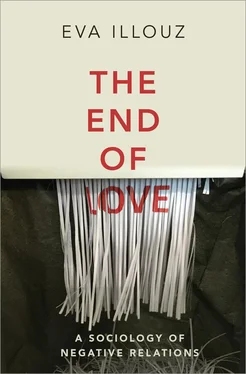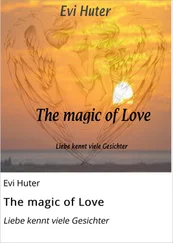A final possible objection to my query has to do with the looming presence of the work of Michel Foucault in the human and social sciences. His Discipline and Punish , 26has been widely influential, spreading the suspicion that democratic freedom was a ploy to mask the processes of surveillance and disciplining entailed by new forms of knowledge and control of human beings. Sociologists devoted their attention to surveillance and viewed, à la Foucault, freedom as a liberal illusion, undergirded by a powerful system of discipline and control. In that sense, freedom as such was a less interesting object of study than the illusion of subjectivity that freedom creates. Yet, at the end of his life, in his Cours at the Collège de France , Foucault increasingly paid attention to the relationship between freedom and governmentality, that is, to the ways in which the idea of freedom in the market had redefined, in his words, a field of action. 27My book subscribes to the late work of Foucault from the standpoint of a cultural sociology of emotions. 28It views freedom as indeed a restructuring of a field of action, as the most powerful and widespread cultural frame organizing the sense of morality, conception of education and relationships, the fundaments of our law, visions and practices of gender, and, more broadly, the basic definition of selfhood of modern people. For a sociologist of culture, freedom is not a moral and political ideal upheld by courts, but represents an enduring, deep, and widespread cultural frame organizing modern people’s self-definition and relationship to others. As a value relentlessly harbored by individuals and institutions, it orients a myriad of cultural practices, the most salient of which is perhaps that of sexual subjectivity defined as “a person’s experience of herself as a sexual being, who feels entitled to sexual pleasure and sexual safety, who makes active sexual choices, and who has an identity as a sexual being.” 29Where Foucault debunked sexuality as a modern practice of self-emancipation ironically perpetuating the Christian cultural obsession with sex, I focus on another question: how does sexual freedom, expressed in consumer and technological practices, reshape the perception and practice of romantic relations, at their beginning, in their formation, and during shared domestic life?
The question of freedom has become even more pressing as the public philosophy and legal organization of liberal polities has privileged one specific type of liberty, namely negative liberty—defined as the freedom of actors to do what they please without hindrance from the external world, as long as they do not hurt others or obstruct their freedom. Such freedom is guaranteed by law and cultivated by many institutions supposed to guarantee one’s rights and privacy and that contain little or no normative content. It is the “emptiness” of negative freedom that has created a space (the space of “non-hindrance”) that could be easily colonized by the values of the capitalist market, consumer culture, and technology, which have become the most powerful institutional and cultural arenas of modern societies. As Karl Marx remarked long ago, freedom contains the risk of letting inequalities flourish unhindered. Catharine MacKinnon drives this point aptly: “[T]o privilege freedom before equality, freedom before justice, will only further liberate the power of the powerful.” 30Freedom then cannot trump equality, because inequality vitiates the possibility of being free. If heterosexuality organizes and naturalizes inequality between the sexes, we can expect freedom to meet, confront, or naturalize such inequality. Only rarely does freedom trump inequality in heterosexual relationships.
What Isaiah Berlin called “negative freedom” has let the language and the practices of the consumer market reshape the vocabulary and grammar of subjectivity. The same language of interests, utilitarianism, instant satisfaction, ego-centered action, accumulation, variety, and diversity of experiences now pervades romantic and sexual bonds and thus demands from us a sobering inquiry into the meaning and impact of freedom, without, however, ever putting into question the moral progress that the struggles of feminist and LGBTQ movements represent. To endorse the historical accomplishments of these movements and to continue their struggle should not prevent us from examining the ways in which the moral ideal of freedom has been deployed historically and empirically in market forms, which also appeal to freedom. 31In fact, understanding how ideas and values, once institutionalized, have a trajectory that is not always the one intended by their proponents will help reclaim the initial ideal of freedom, which was the impulse behind these movements. Thus if neoliberalism has notoriously entailed a demise of normativity in economic transactions (transforming public institutions into profit-making organizations and turning self-interest into the natural epistemology of the actor), there is no reason not to ask whether sexual freedom does not have similar effects on intimate relationships, that is, whether they do not mark a demise of normativity in naturalizing self-centered pleasure and instituting sexual competition and sexual accumulation, thereby letting relationships go unregulated by moral and ethical codes. In other words, has sexual freedom become the neoliberal philosophy of the private sphere, 32a discourse and practice that melts away the normativity of relations, naturalizes the consumer ethic and technology as a new form of emotional self-organization, and makes the normative and moral core of intersubjectivity less intelligible? While freedom itself has been a powerful normative claim to oppose the institution of forced or loveless marriages, to assert the right for divorce, to conduct one’s sexual and emotional life according to one’s inclinations, to grant equality to all sexual minorities, we may wonder if today that same freedom has not unmoored sexual relations from the moral language in which it was initially steeped (for example by disposing of the language of obligation and reciprocity in which all or at least most social interactions had been traditionally organized). In the same way that contemporary monopolistic capitalism contradicts the spirit of free exchange that was at the center of early conceptions of the market and commerce, a sexual subjectivity tightly organized by consumer and technological culture conflicts with the vision of emancipated sexuality, which was at the heart of the sexual revolution, because such sexuality ends up reproducing, compulsively, the very schemes of thought and action that make technology and economy the invisible movers and shapers of our social bonds.
Heterosexuality is a more privileged terrain from which to study this question than homosexuality for a number of reasons. In its present form, heterosexuality is based on gender differences, which more often than not function as gender inequalities; heterosexuality in turn organizes these inequalities in an emotional system that places the burden of success or failure in relationships on people’s psyche, mostly women’s. Freedom makes emotional inequalities go undetected and unaddressed. Men and women, but mostly women, turn to their psyche in order to manage the symbolic violence and wounds contained in such emotional inequalities: “Why is he distant?” “Am I acting too needy?” “What should I do to catch him?” “What mistakes did I do to let him go?” All these questions, asked for women and by women, point to the fact that heterosexual women feel culturally largely responsible for the emotional success and management of relationships. In contrast, homosexuality does not translate gender into difference and difference into inequality, nor is it based on the gender division between biological and economic labor that has characterized the heterosexual family. In that sense, the study of the effect of freedom on heterosexuality is sociologically more urgent: because it interacts with the still-pervasive and powerful structure of gender inequality, sexual freedom makes heterosexuality ridden with contradictions and crisis. 33Moreover, because heterosexuality was closely regulated and codified by the social system of courtship supposed to lead to marriage, the shift to emotional and sexual freedom enables us to grasp in a crisper way the impact of freedom on sexual practices and the contradiction such freedom may have created with the institution of marriage (or partnership) that remains at the heart of heterosexuality. In contrast, homosexuality was, until recently, a clandestine and oppositional social form. For that reason, it was ab origine defined as a practice of freedom, conflicting and opposing the domestic institution of marriage, which used and alienated women and ascribed men to patriarchal roles. This book then is an ethnography of contemporary heterosexuality (although I occasionally interviewed homosexuals as well), which, as a social institution, has been under the push-and-pull of forces at once emancipatory and reactionary, modern and traditional, subjective and reflective of the capitalist, consumerist, and technological forces of our society.
Читать дальше












